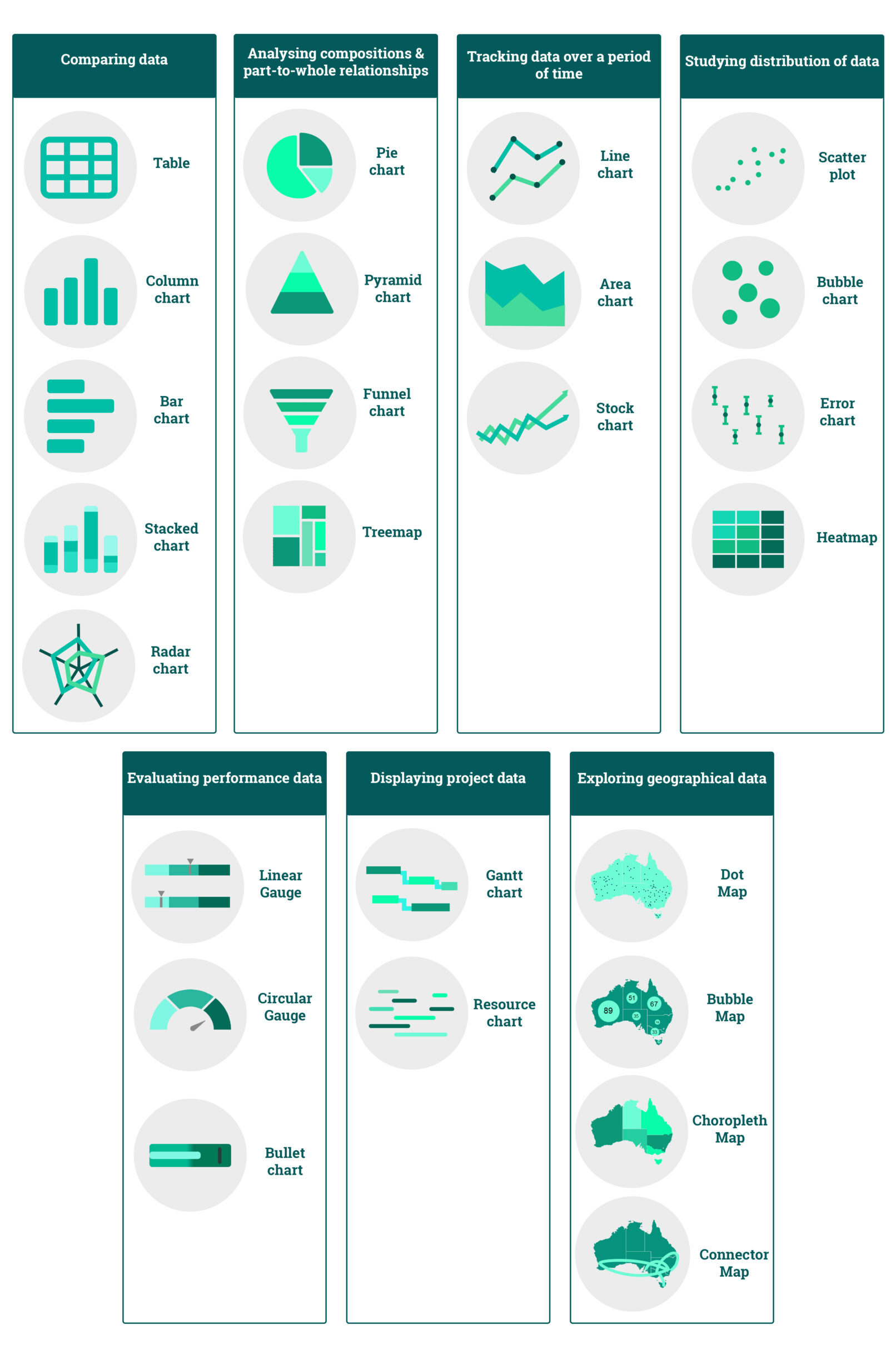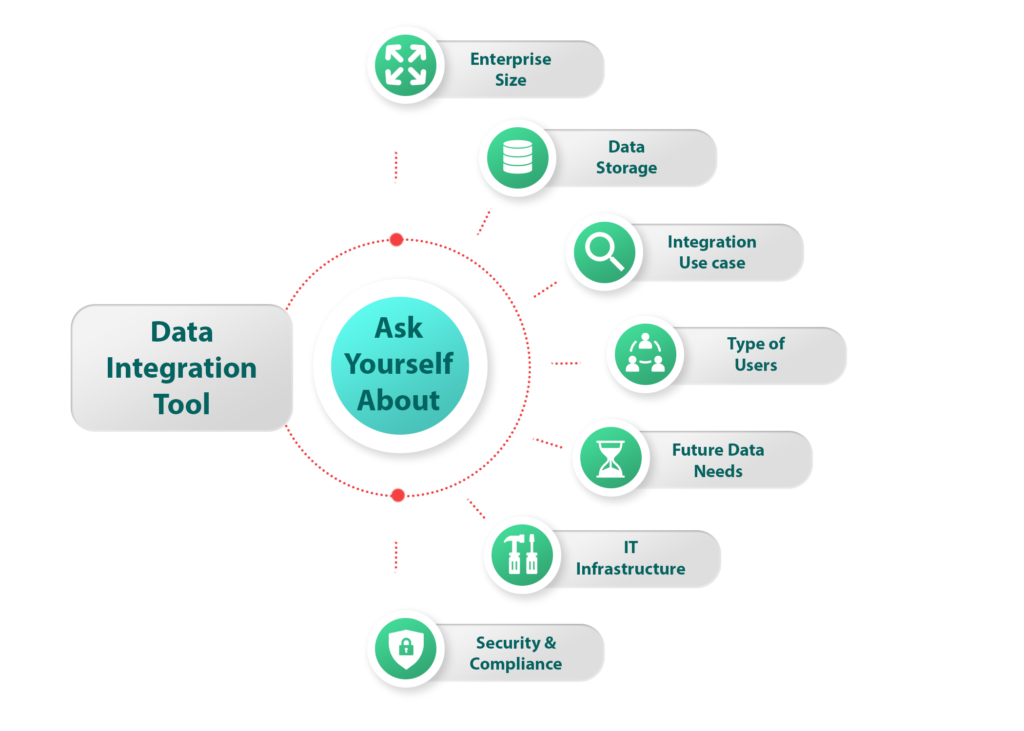
Cheatsheet for Charts: Pair the Right Chart with the Right Set of Data
To ensure your message conveyed through your data is clear and correct, you need to use the right charts to visualize it.
Nov 11, 2020 | Article
The wide variety of data integration tools available nowadays is more than anyone could possibly need. While selecting the appropriate data integration tool from the various market options, it is essential to be wise enough and avoid going for a “one-size-fits-all” approach. So, how would you select the right one?

Here are seven vital questions you can ask yourself while choosing the best data integration solution for your business:
1. What are the size of your enterprise and the volume of your data?
Depending on your company’s size and the amount of data you hold, different tools are best suited to you. Large enterprises may consider tools that address a range of integration use cases and provide scalability to handle the data volume and complexity. Midsize companies can go for products that offer capabilities to manage the data variety, scope of integration uses, and resource constraints typical for such organizations. Small businesses with budget constraints may consider tools tied with the databases they already use or open-source tools.
2. Where is your data?
Your data integration tool’s choice will be highly influenced by the types, number, and nature of your data sources and where it is stored. It is crucial to choose a tool that is capable of working with all your data formats and applications.
3. What are you trying to accomplish with your data integration
tool?
Does your company need to process data for master data management? What about synchronizing data between on-premises systems, IoT devices, and cloud applications? Before making a choice, make sure you have a clear picture of what a successful outcome for your data integration needs will look like.
4. What is the technical expertise of your users?
The available tools range from relatively simple, visual tools that a wide range of people can use but with limited functionality or flexibility to extremely technical tools that need technical users to take advantage of them. Establishing your user skill level will help you find the right tool, which gives your business the most value.
5. What are your future data needs?
As your business grows, so too will the volume and the complexity of your data. While considering solutions for meeting your needs today, you should also think about how your data needs will change in the future. When making your choice, ensure that the tool can seamlessly scale up and down as per your requirements.
6. What kind of IT infrastructure do you have?
Your IT infrastructure plays a significant role in determining if you should consider on-premise
tools or opt for other options, including cloud-based and open-source data integration tools. Whatever your data storage setup is, on-premise, cloud, or hybrid, make sure that your chosen data integration tool can work with it.
7. What are your security and compliance needs?
Depending on the industry your enterprise operates in, you might need to comply with different regulations and security protocols that govern how you store and treat sensitive private data. Confirm that the data integration tool you select is compliant with all necessary laws and standards.

To ensure your message conveyed through your data is clear and correct, you need to use the right charts to visualize it.

The current COVID-19 situation has compelled marketers around the world to rethink their strategies. Here are six significant steps we see marketing leaders implementing in these trying times. Also, listed are the metrics and plans that can help you validate if your efforts are successful.

Snowflake unveiled its first installment of native integrations with Salesforce and many new features designed to achieve full data mobility.
